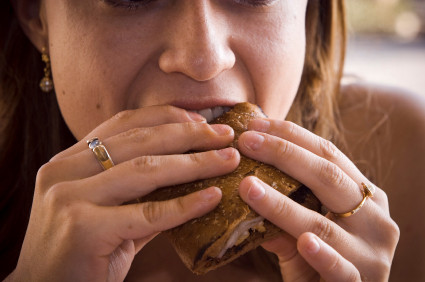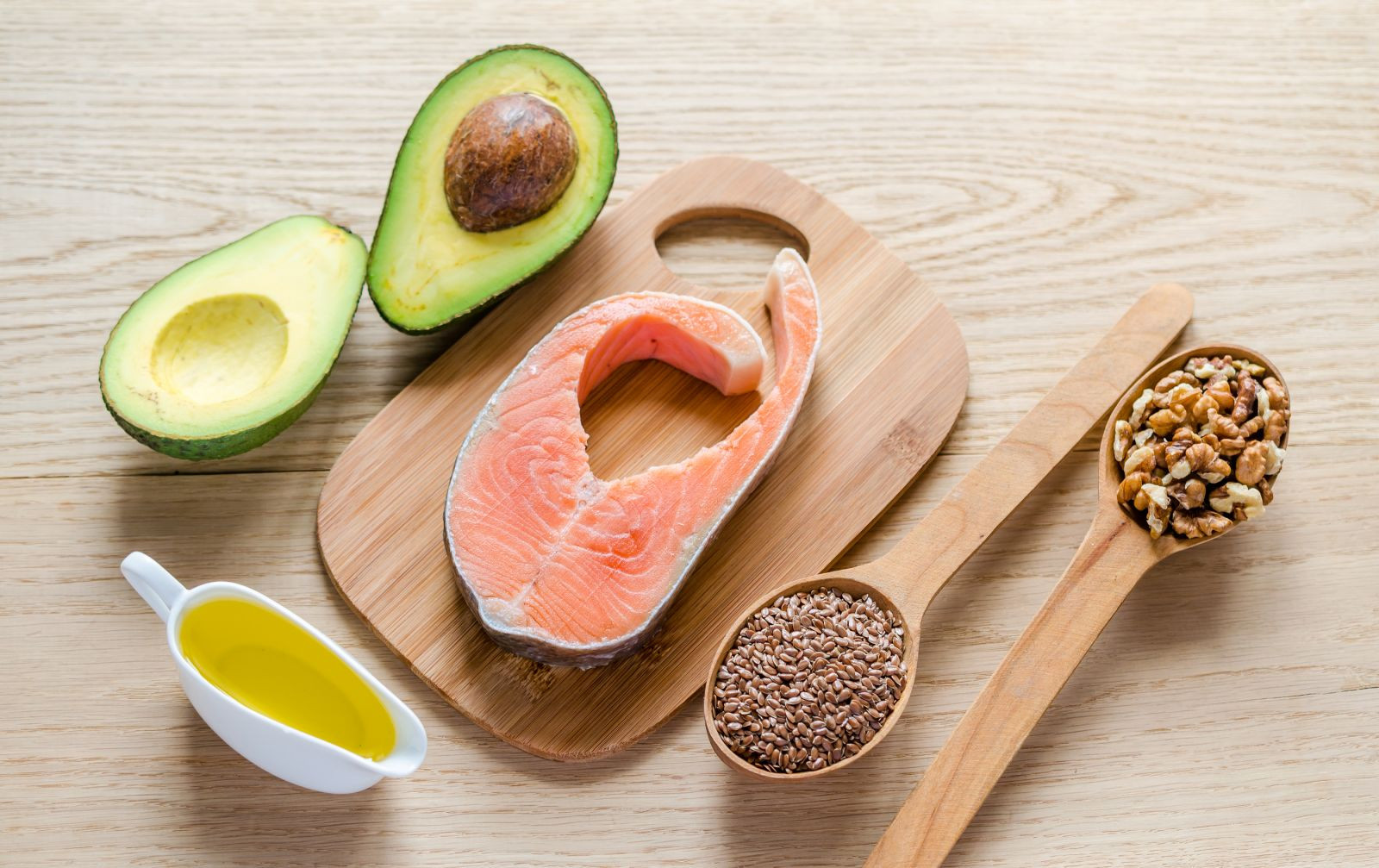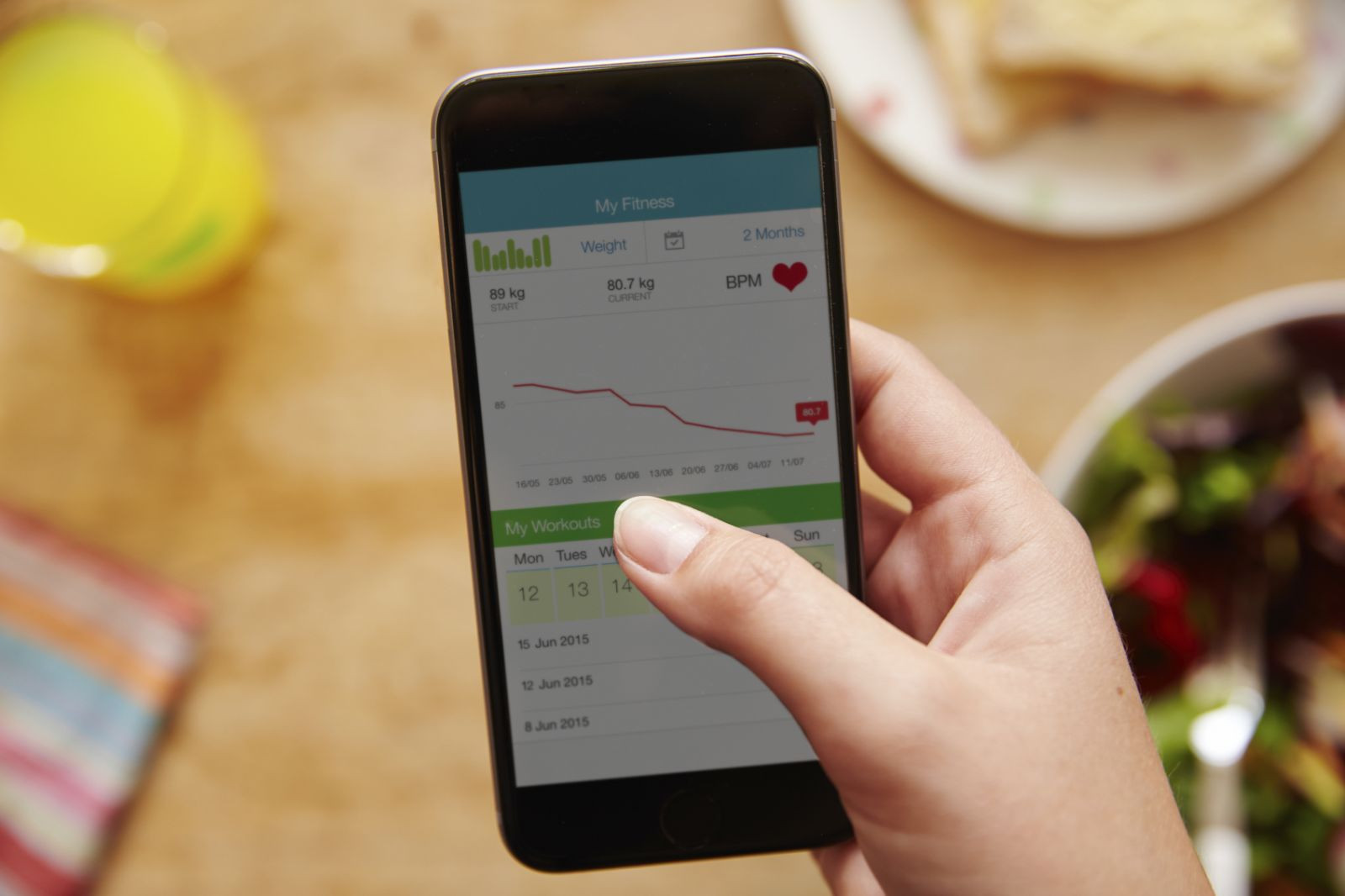
Daily cup of coffee may prevent afib recurrence

Gene-editing therapy lowers harmful blood fats in early study

What is EMDR therapy, and who can it help?

GLP-1 drugs versus bariatric surgery for treating obesity

Trying to lose weight? Be careful not to lose muscle

Two dumbbells, three exercises, and 10 minutes

Easing the emotional burden of IBS

Modify your push-ups to meet your fitness level

What is long QT syndrome?

Stroke survivors may benefit from very low LDL levels
Diet & Weight Loss Archive
Articles
8 steps to mindful eating
This ancient practice can transform the way you think about food and set the stage for a lifetime of healthy eating.
Like most of us, you've probably eaten something in the past few hours. And, like many of us, you may not be able to recall everything you ate, let alone the sensation of eating it. According to a 2011 report from the U.S. Department of Agriculture, the average American spends two-and-a-half hours a day eating, but more than half the time, we're doing something else, too. Because we're working, driving, reading, watching television, or fiddling with an electronic device, we're not fully aware of what we're eating. And this mindless eating—a lack of awareness of the food we're consuming—may be contributing to the national obesity epidemic and other health issues, says Dr. Lilian Cheung, a nutritionist and lecturer at Harvard T.H. Chan School of Public Health.
Stand more to lower your risk of obesity
In the journals
Even if you are active, increasing the time you spend standing every day may further lower your odds of becoming obese, says a new study from the American Cancer Society.
The researchers studied more than 7,000 patients, ages 20 to 79, and reviewed the association between their standing time and their risk of obesity. They looked at specific measurements—such as body mass index, waist circumference, and body fat percentage—and metabolic syndrome, a clustering of factors that increases the risk for heart disease, stroke, and diabetes.
Sugar substitutes: Just sweet nothings?
Image: Thinkstock
A high-sugar diet may raise heart disease risk. But no-calorie sweeteners aren't ideal alternatives.
If you have a sweet tooth, your heart may be paying the price. Diets high in added sugars have been linked to a host of health woes, including obesity, high blood pressure, high cholesterol, and even a higher risk of dying of heart disease.
Belly fat boosts risk of dying of heart disease
Research we're watching
Even if you're not overweight, having a large belly raises your risk of dying of heart disease, a new study suggests.
To explore factors linked to early death, researchers relied on body measurements and other health information gleaned from more than 15,000 adults who took part in a national health survey. The average follow-up period was 14 years.
Does dietary fat matter for long-term weight loss?
News Briefs
Want to lose weight? Don't focus on fat. A Harvard analysis published Oct. 30, 2015, in The Lancet Diabetes & Endocrinology suggests that low-fat diets don't work any better than higher-fat diets when it comes to long-term weight loss. Researchers analyzed the data from a total of about 68,000 people in 53 studies that looked at low-fat diets compared with other types of diets, such as higher-fat diets with low carbohydrates. After one year or longer, people on all types of diets had lost and kept off an average of 6 pounds. So how can you lose weight? As we reported in the December 2015 Health Letter, it's not dietary fat that makes you fat; it's the combination of excess calories and too little physical activity. Each gram of fat has nine calories, which is more than in a gram of carbohydrates or proteins, so don't eat too many of them. What should you eat to lose weight? Go for vegetables, fruits, lean meats and fish, fiber, healthy fats (almonds, avocados, salmon), and whole grains. Talk to your doctor or a dietitian about how many calories per day you should eat to lose weight.
7 tips for eating healthy when you can't count calories
Image: Bigstock
Counting calories is one of the most reliable ways to maintain or lose weight. But it's not always easy to do when you're out and about or pressed for time — and there are plenty of situations (such as a dinner party at a friend's house) that just don't lend themselves well to a "strictly numbers" approach.
Here are some guidelines to follow when straight calorie counting is impractical.
Healthier meals on the go
Yes, you can find convenient fast-cook meals, but you'll have to do your homework.
Image: Thinkstock
Ever notice how nutrition takes a back seat when you're hungry? Packaged and prepared foods somehow don't seem unhealthy when you need a meal in a hurry. But is there such a thing as a nutritious convenience food? "Yes, there are some healthy options out there, but you really have to look for them," says registered dietitian Kathy McManus, director of the Department of Nutrition at Harvard-affiliated Brigham and Women's Hospital.
Typical convenience foods
Packaged, prepared foods come in several forms: boxed, dry goods such as quick-cook pasta and rice mixes; canned foods, such as soup or ravioli; or frozen foods, such as a single frozen dinner or a "family-sized" lasagna.
Sugary drinks seem to raise blood pressure
Image: Thinkstock
Research we're watching
Drinking as little as one sugar-sweetened beverage a day is linked to a slightly greater risk of high blood pressure, a new analysis suggests.
Researchers pooled findings from six studies that included a total of more than 240,000 people. They found a 12% higher risk of high blood pressure among people who drank one or more sugary drinks daily compared with those who drank none. Serving sizes of the beverages varied from 7 to 12 ounces among the different studies.
10 tips for mindful eating — just in time for the holidays
Eating without awareness can lead to overeating and take away much of the pleasure that can be found in your meals. During the holidays, it can easily cause you to overindulge. Taking a mindful approach to meals by slowing down and savoring the experience can not only help with weight control, but also enhance health and well-being — as well as your enjoyment of the meal.
Helping your heart: There's an app for that
Image: iStock
Smartphone apps encourage you to take an active role in monitoring and boosting health.
When it comes to healthy hearts, technology is playing a greater role than ever, and not just in the doctor's office. Now nearly anyone can use computer programs designed to improve heart health, thanks to downloadable applications (apps) for smartphones, tablets, and home computers. They're part of a trend known as mobile health or mhealth. "In general, health apps can provide very valuable information, as long as you understand their limitations," says Dr. Randall Zusman, a cardiologist with the Corrigan-Minehan Heart Center at Harvard-affiliated Massachusetts General Hospital and a Harvard Medical School associate professor.

Daily cup of coffee may prevent afib recurrence

Gene-editing therapy lowers harmful blood fats in early study

What is EMDR therapy, and who can it help?

GLP-1 drugs versus bariatric surgery for treating obesity

Trying to lose weight? Be careful not to lose muscle

Two dumbbells, three exercises, and 10 minutes

Easing the emotional burden of IBS

Modify your push-ups to meet your fitness level

What is long QT syndrome?

Stroke survivors may benefit from very low LDL levels
Free Healthbeat Signup
Get the latest in health news delivered to your inbox!
Sign Up











